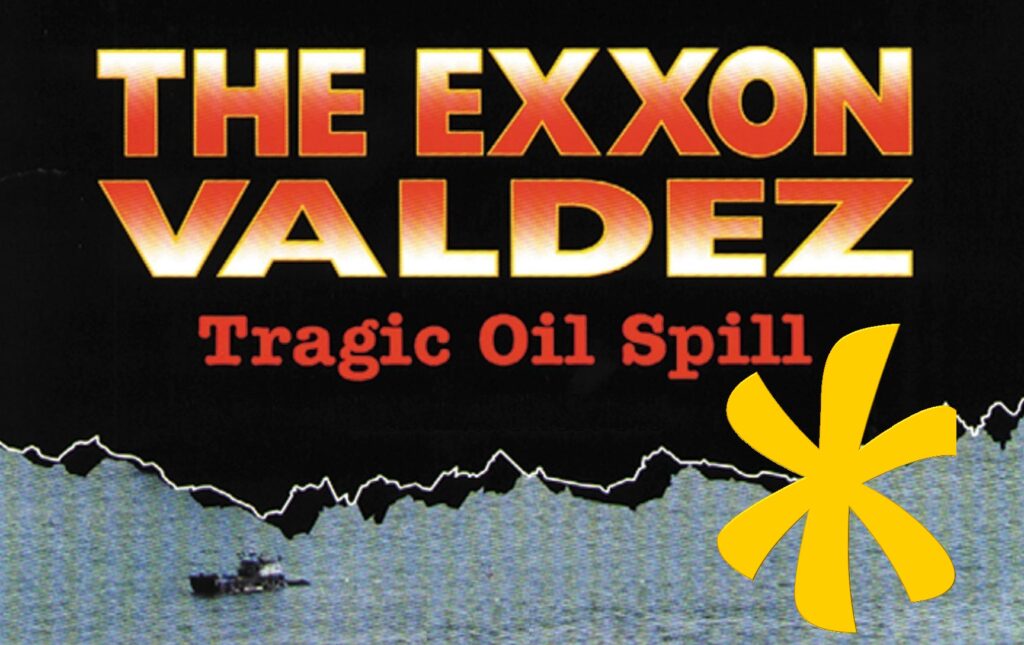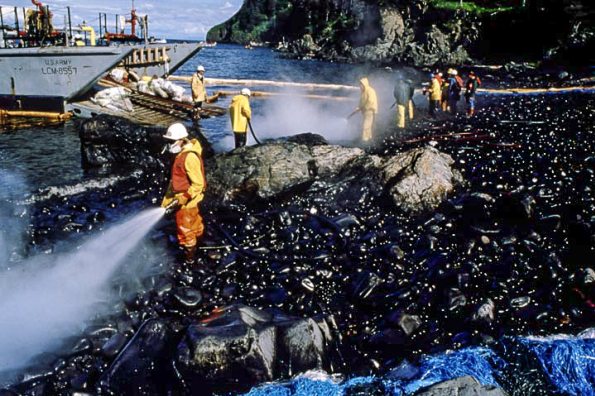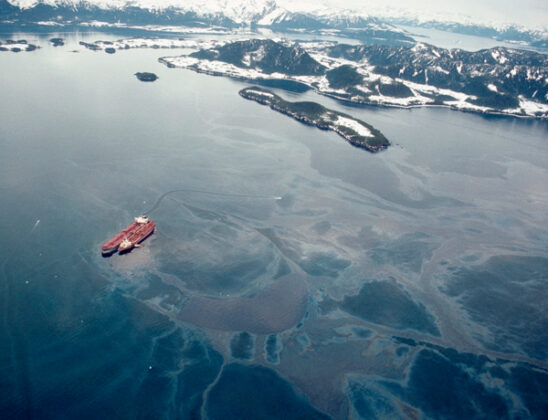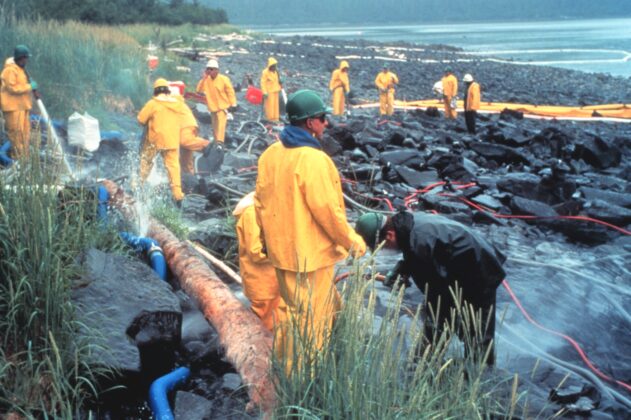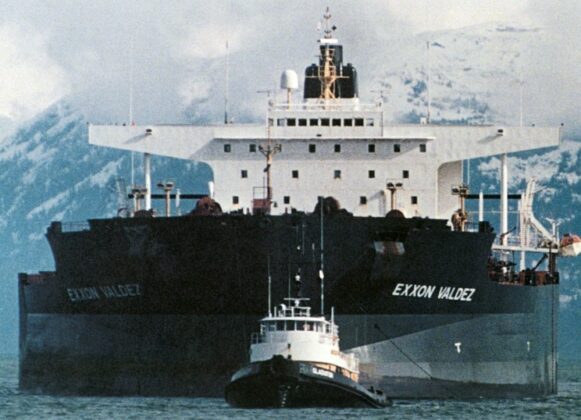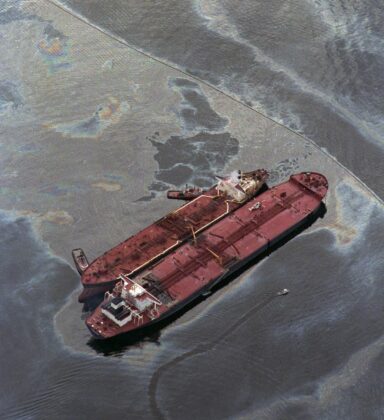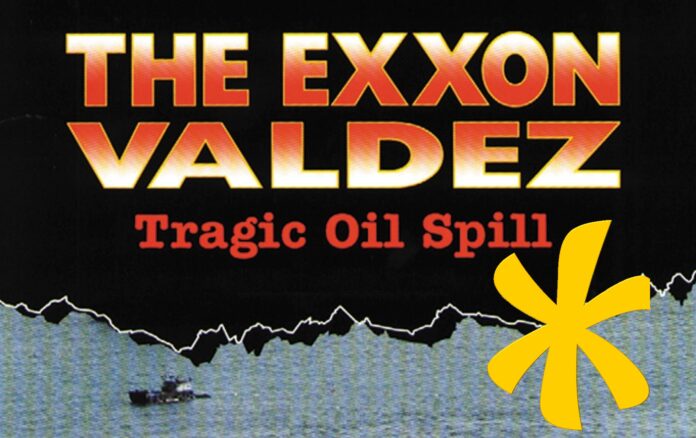
(www.MaritimeCyprus.com) On 24 March 1989, the single-hull tanker EXXON VALDEZ was departing the Port of Valdez, Alaska with a full load of North Slope crude oil (approximately 1.26 million barrels) destined for Long Beach when it grounded on Bligh Reef in Prince William Sound.
The resulting oil spill, while not the largest in US history, was clearly the most important. It engendered much litigation.
Storyline:
One of the worst oil spills in U.S. territory begins when the supertanker Exxon Valdez, owned and operated by the Exxon Corporation, runs aground on a reef in Prince William Sound in southern Alaska. An estimated 1.26 million barrels of oil eventually spilled into the water. Attempts to contain the massive spill were unsuccessful, and wind and currents spread the oil more than 100 miles from its source, eventually polluting more than 700 miles of coastline. Hundreds of thousands of birds and animals were adversely affected by the environmental disaster.
It was later revealed that Joseph Hazelwood, the captain of the Valdez, was drinking at the time of the accident and allowed an uncertified officer to steer the massive vessel. In March 1990, Hazelwood was convicted of misdemeanor negligence, fined $50,000, and ordered to perform 1,000 hours of community service. In July 1992, an Alaska court overturned Hazelwood’s conviction, citing a federal statute that grants freedom from prosecution to those who report an oil spill.
Exxon itself was condemned by the National Transportation Safety Board and in early 1991 agreed under pressure from environmental groups to pay a penalty of $100 million and provide $1 billion over a 10-year period for the cost of the cleanup. However, later in the year, both Alaska and Exxon rejected the agreement, and in October 1991 the oil giant settled the matter by paying $25 million, less than 4 percent of the cleanup aid promised by Exxon earlier that year.
Public concern over the spill led directly to enactment of the Oil Pollution Act of 1990 (OPA 90), which mandated double hulls for new tankers, response plans, and a number of other remedial measures. OPA 90 also significantly changed the liability and compensation scheme for oil spills in US waters. The amount of oil entering waters of the United States from ships drastically decreased following implementation of OPA 90.
Exxon Valdez short documentary from The New York Times:
Exxon Valdez full documentary from History Channel:
For more interesting maritime infographics click HERE





